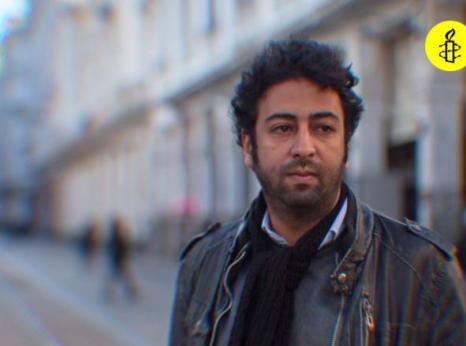Morocco: Detained Journalist Must Get A Fair Trial

Omar Radi is an investigative journalist and activist from Morocco. He is a founder of and journalist at Le Desk, an independent Moroccan news website that publishes content critical of the authorities. He has worked with several national and international media outlets. His investigations have focused on political affairs, including the relations between political powers and business elites in Morocco and investigating corruption by the authorities. In 2013, he won the first investigative journalism award of International Media Support (IMS) and the Association of Moroccan Investigative Journalists (AMJI) for an investigation into the exploitation of sand quarries published on Lakome. In 2016, he was the author of an investigation report widely known as “Servants of the State” in which he listed the names of around 100 senior officials alleged to have illegally acquired state land.”
On 23 March 2021, an investigative judge indicted Omar Radi for “harming the internal and external security of Morocco” based on an accusation that he had received funds from sources “linked to foreign intelligence agencies”. Amnesty International has found that Omar Radi has received funds transferred from abroad for research grants in the context of a journalism fellowship and freelance consultancies, both related to his exercise of freedom of expression. During the trial, the prosecution did not provide any evidence that he had revealed classified information or in any way acted outside of his legitimate work. Amnesty International therefore considers the charges to be spurious. A similar tactic is often used by the Moroccan authorities to intimidate critics; in 2015, similar charges were brought against academic Maati Monjib for legitimately receiving funding from a foreign NGO.
Omar Radi is also charged with “rape” and “indecent assault against a female” based on an accusation made by a former colleague at Le Desk, who alleges Omar Radi assaulted her on 12 July 2020. He denies this, affirming that he had a “consensual sexual relationship” with her. A witness in this case, who was present during the alleged incident, has denied throughout the investigation that rape took place. The witness has also been indicted as an accomplice of the rape. Allegations of sexual violence should always be taken seriously and investigated properly. However, it is worth noting that there has been an ongoing pattern of sexual assault charges being brought against critics of the government in the context of detention or prosecutions related to their freedom of expression.
Omar Radi’s targeting by the Moroccan authorities for espionage is not new. On 17 March 2020, a court in Morocco handed Omar Radi a suspended four-month prison sentence and a fine of 500 Moroccan dirhams (US$52) for a tweet in which he criticized an appeal court judge for upholding heavy prison sentences against Hirak El-Rif activists.
In June 2020, an Amnesty International report revealed that Omar Radi was targeted by the Moroccan authorities using spyware produced by NSO Group, an Israeli company. Following its publication, the Moroccan authorities launched a smear campaign against Amnesty International, in an attempt to discredit the organization’s findings and distract from the unlawful surveillance in Morocco of human rights defenders and journalists. In October 2019 Amnesty International had published a report presenting evidence Moroccan human rights defenders Maati Monjib and Abdessadak El Bouchattaoui had similarly baeen targeted by surveillance technology produced by the company NSO Group. Amnesty International has underlined the gravity of the threat that unlawful targeted surveillance poses to the rights to freedom of expression and peaceful assembly in Morocco.
Omar Radi has been in solitary confinement since his detention in July 2020. He is allowed an hour daily walk outside his cell but no contact with other prisoners; a treatment that amounts to torture. In December 2020, Amnesty International and Human Rights Watch sent a letter to the Interministerial Delegation for Human Rights (DIDH) to express concern about the solitary confinement of Journalists Omar Radi and Sulaiman Raisouni. The authorities denied that both journalists imprisonment conditions amount to solitary confinement. However, the United Nations’ Standard Minimum Rules for the Treatment of Prisoners, also known as the Mandela Rules, define solitary confinement as spending 22 hours or more per day without meaningful human contact.